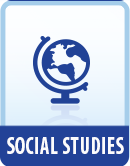|
This section contains 1,241 words (approx. 5 pages at 300 words per page) |

|
Much of the economic power formerly vested in nation-states also came to rest with such international institutions as the European Union (EU), World Trade Organization (WTO), and International Monetary Fund (IMF). These entities gained substantial control over the national economies of sovereign states. Critics of this development, such as Ralph Nader and Patrick J. Buchanan, raised the specter of world government, sensing an alarming concentration of power in multinational and international hands. The triumph of the WTO, Nader complained, "means foreign regulation of America. . . . It means secret tribunals can rule against our laws." Defenders of globalization, on the contrary, believed that it was an inevitable change and that the only question remaining was what sort of world economy and government would be established. Nations have always traded with one another for their mutual benefit, argued Robert Wright in New Republic. They will doubtless continue...
|
This section contains 1,241 words (approx. 5 pages at 300 words per page) |

|




